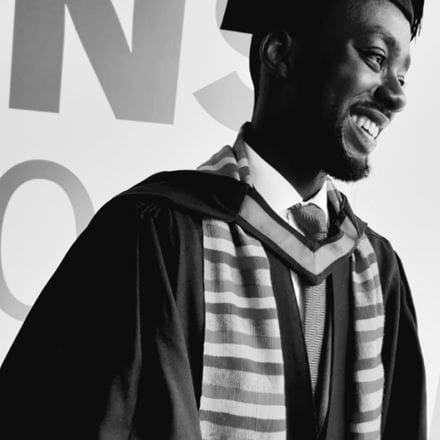Professional qualification routes

Preparing you for your future
Routes to a professional qualification
The provision of legal services is rapidly changing, with exciting new opportunities opening up. We'll help you navigate through the maze. Lawyers work in a wide range of roles – advising businesses, individuals and public bodies and representing clients in courts and tribunals. We're a global law school, with many of our graduates moving into legal careers outside the UK.
In England and Wales, our LLB degrees meet the requirements for the academic stage of training set by the Bar Standards Board. After this, you can progress through further vocational study and practical training to obtain a professional legal qualification. Below you can find additional information on professional qualification routes in France, Canada, Malaysia, and other jurisdictions.
Please note that the routes to becoming a solicitor/ barrister changed in 2021. We've provided more information about the changes to the solicitor-route, and the barrister route.
England and Wales
- To become a solicitor, you will need to complete your undergraduate degree, pass the Solicitors Qualifying Exam (SQE 1 and SQE 2), and complete two years’ qualifying work experience. The Solicitors Regulation Authority regulates training to become a solicitor. There are more than 100,000 practising solicitors in England and Wales working in a wide variety of law firms, companies, charities, and in government. They deal with a whole range of legal transactions and disputes for businesses, individuals and other organisations. Some solicitors, with further training, represent clients in higher courts.
- To become a barrister, you need to complete your law degree, take a one-year vocational course to acquire specialist skills, and complete a one-year pupillage. The Bar Standards Board (BSB) regulates training to become a barrister. About 17,000 barristers practice as self-employed professionals, offering specialist legal advice on complex matters and representing clients in courts and tribunals. Some barristers are employed as in-house counsel by businesses, the government and the Crown Prosecution Service.
- The CILEX Professional Qualification (CPQ) has replaced the CILEX Graduate Fast Track Diploma. Under the new qualification framework, you can become a CILEX Lawyer, a CILEX Advanced Paralegal or a CILEX Paralegal. The CILEX route to qualification is regulated by CILEX. Currently, there are almost 8,000 legal executives who qualified under the previous scheme, most of them working in law firms.
- CLC lawyers are conveyancers and licensed probate practictioners. To become a CLC lawyer you take a part-time course authorised by the Council for Licensed Conveyancers while working. There are more than 1,500 licensed conveyancers who specialise in the legal process of transferring property from one person to another; some also deal with wills and probate when a person dies.
- It's increasingly common for law graduates to work as paralegals in law firms without a formal professional qualification in law or as a stepping-stone to becoming a solicitor. Under the SQE route to qualification, working as a paralegal could count towards the two-year Qualifying Work Experience needed to become a solicitor. It is possible to become an accredited CILEX Paralegal/Advanced Paralegal.
Becoming a solicitor
The Solicitors Regulation Authority (SRA) has introduced a new route to qualification: the Solicitors Qualifying Examination (SQE). This is a national assessment for anyone who wants to qualify as a solicitor in England and Wales. It’s intended to provide a fair and consistent assessment for all candidates, regardless of whether they have taken a law degree or qualified through new routes like the solicitor apprenticeship. If you registered for your degree after 21 September 2021, you follow the new SQE route to qualification. This means:
- having a degree or equivalent
- two stages of the SQE assessment
- having a two year period of work experience
- meeting the character and suitability requirements to become a solicitor
The SRA has provided guidance about how to qualify under the new system.
Changes to the pathway for becoming a barrister
The new framework for qualifying to become a barrister continues to require an undergraduate law degree (or an undergraduate degree in a different subject area followed by a Graduate Diploma in Law). The requirements for the academic stage of training are set by the BSB. Our LLB degrees meet these requirements and, therefore, meet the academic component of training to become a barrister.
Professional qualification routes in France, Canada, Malaysia, and other jurisdictions
France
Following the France’s Ministry of Education Reform in 2016 our new 3-year programme (LLB and Licence) gives you the flexibility once completed at end of license 3 to select a 2-year integrated Masters course you want to study at a University in France. The selection at master level takes place at Master 1 (at the end of the Licence 3) and no longer at Master 2 (at the end of Master 1) and once completed, qualifies you to take professional law examinations in France. The two professional law exams most often taken up by our students are the certificat d’aptitude à la profession d’avocat (CAPA) and the competition to become a judge (Ecole nationale de la Magistrature).
Under this new system the Master 1 and Master 2 must both be completed at the same University, if you change from one degree to another at the end of masters year 1, you will need to start a new Master’s degree from the beginning. The LLB English and French Law (Licence) gives you the flexibility in choosing your masters route.
Canada
You’ll need to demonstrate competence to the National Committee on Accreditation (NCA), which assesses the qualifications of anyone with legal qualifications obtained outside of Canada who wishes to be admitted to a common law bar in Canada. This involves completing more modules, either studying from home or at a law school in Canada (or a combination of the two). Once you’ve successfully completed the NCA requirements, you’ll be awarded a Certificate of Qualification, accepted by most Canadian law societies for entry to their bar admissions process.
Malaysia
Essex Law School is recognised by the Legal Profession Qualifying Board Malaysia.
Other jurisdictions
Essex law graduates can be found working in law in many other jurisdictions. If this is a career path for you, we’ll support your ambitions.

We're extremely proud of Kwame Taylor, who has successfully been awarded the prestigious H.R. Light Scholarship by the Middle Temple. Kwame went on to graduate in 2019 with an LLB Law with Philosophy, after admitting to having a "blip" at A Levels, but made up for lost time as an undergraduate at Essex.


